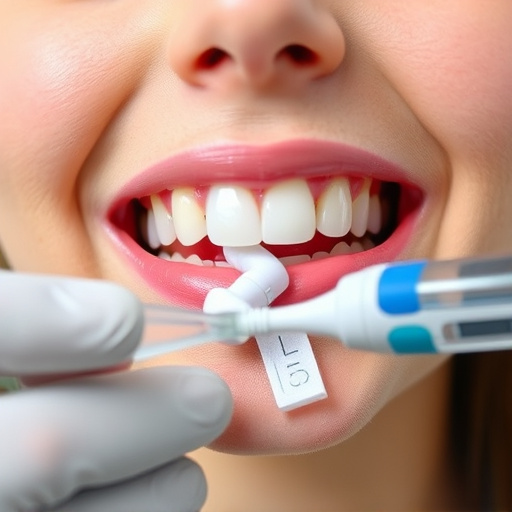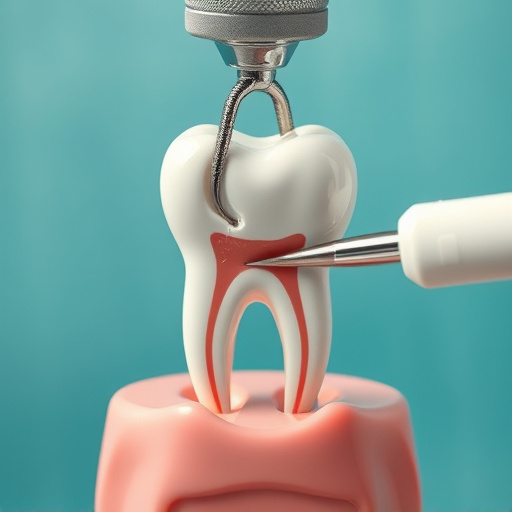Post-surgical infections, from minor to major procedures, are caused by bacteria and can lead to complications. Antibiotic therapy treatment is crucial for managing these infections, speeding recovery, and preventing further issues, especially in dental surgeries where moisture increases infection risk. Effective antibiotic management by healthcare providers, tailored to individual needs, ensures improved patient outcomes, reduces recurrence, and promotes long-term oral health through regular check-ups.
Post-surgical infections (PSIs) are a significant concern, impacting patient recovery and healthcare costs. This article explores the critical role of antibiotic therapy treatment in managing PSIs, focusing on understanding their impact and optimizing strategies for effective care. We delve into the mechanisms behind antibiotic therapy treatment, highlighting its essential role in preventing and controlling infections after surgery. By understanding PSI risks and implementing tailored antibiotic therapy treatment plans, healthcare providers can enhance patient outcomes and reduce complications.
- Understanding Post-Surgical Infections and Their Impact
- The Role of Antibiotic Therapy in Infection Management
- Optimizing Antibiotic Treatment Strategies for Effective Post-Surgical Care
Understanding Post-Surgical Infections and Their Impact
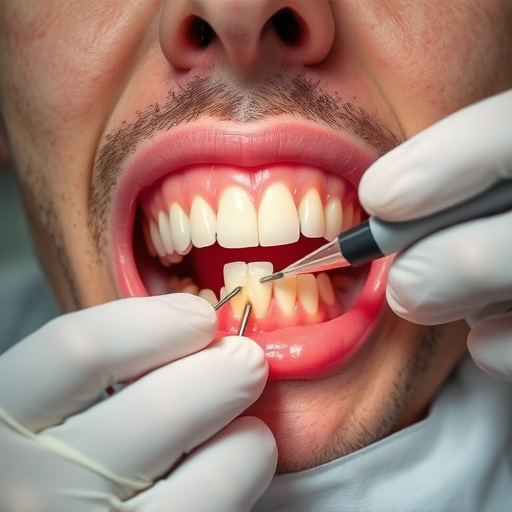
Post-surgical infections can occur after any surgical procedure, from minor operations like dental bonding or dental cleanings to major surgeries. These infections arise when bacteria enter the wound site and multiply, leading to inflammation and potential tissue damage. The impact is significant; it not only prolongs recovery but also increases the risk of complications, including systemic infection and the need for additional surgeries.
Antibiotic therapy treatment plays a crucial role in managing these infections by killing or inhibiting the growth of bacteria. Timely administration of antibiotics can significantly reduce post-operative complications and speed up healing processes. In dental procedures, for instance, where the risk of infection is high due to the mouth’s naturally moist environment, preventive dentistry practices including regular dental cleanings are essential to minimize bacterial loads and lower the chances of infection post-surgery.
The Role of Antibiotic Therapy in Infection Management
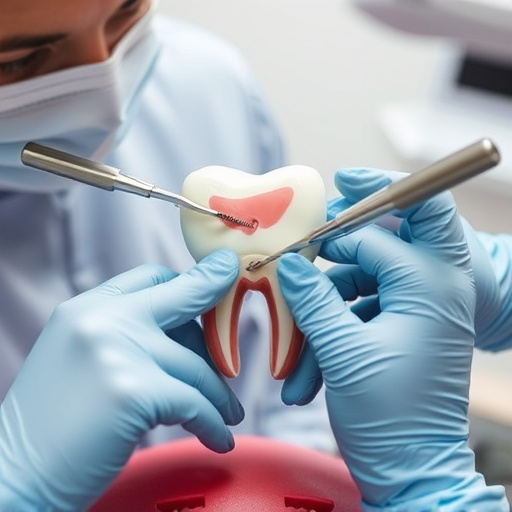
Antibiotic therapy treatment plays a pivotal role in managing post-surgical infections, ensuring patients’ safe recovery. It involves the administration of antibiotics to combat bacterial infections that may arise after dental procedures or other surgeries. The primary goal is to prevent and control infection, reducing complications and enhancing healing. Antibiotics work by targeting and destroying harmful bacteria, allowing the body’s natural defenses to repair the affected area.
For comprehensive dental care, regular dental cleanings, and emergency dental care situations, antibiotic therapy is often prescribed prophylactically or after an infection has occurred. This treatment is particularly crucial for individuals with compromised immune systems, as it helps maintain oral health and overall well-being. By understanding the importance of antibiotic therapy in infection management, healthcare providers can offer effective solutions to patients, promoting better outcomes and faster recovery times.
Optimizing Antibiotic Treatment Strategies for Effective Post-Surgical Care
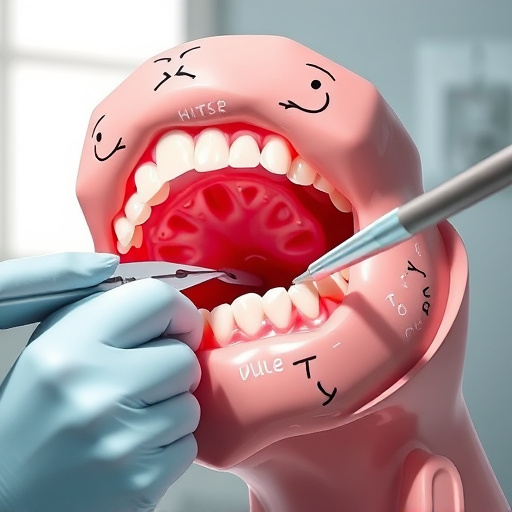
Optimizing antibiotic treatment strategies is pivotal for effective post-surgical care. Healthcare professionals must consider various factors to ensure the right antibiotic therapy treatment. This includes understanding the specific infection type, patient’s overall health, and potential drug interactions. Personalized approaches are essential, especially in restorative dentistry procedures like dental bonding, where local infections can significantly impact healing. A tailored antibiotic regimen, combined with routine oral exams, can prevent and manage post-surgical complications effectively.
By integrating these strategies, dentists and surgeons can enhance patient outcomes, minimize the risk of infection recurrence, and ultimately contribute to a smoother recovery process. This proactive approach not only guarantees better short-term results but also fosters long-term oral health, as highlighted by the importance of routine dental check-ups in maintaining overall well-being.
Antibiotic therapy treatment plays a pivotal role in managing post-surgical infections, significantly reducing complications and enhancing patient recovery. By understanding the impact of these infections and optimizing treatment strategies, healthcare professionals can ensure effective post-operative care. This holistic approach, focusing on both prevention and timely intervention, is crucial for minimizing risks and promoting positive surgical outcomes.












